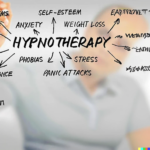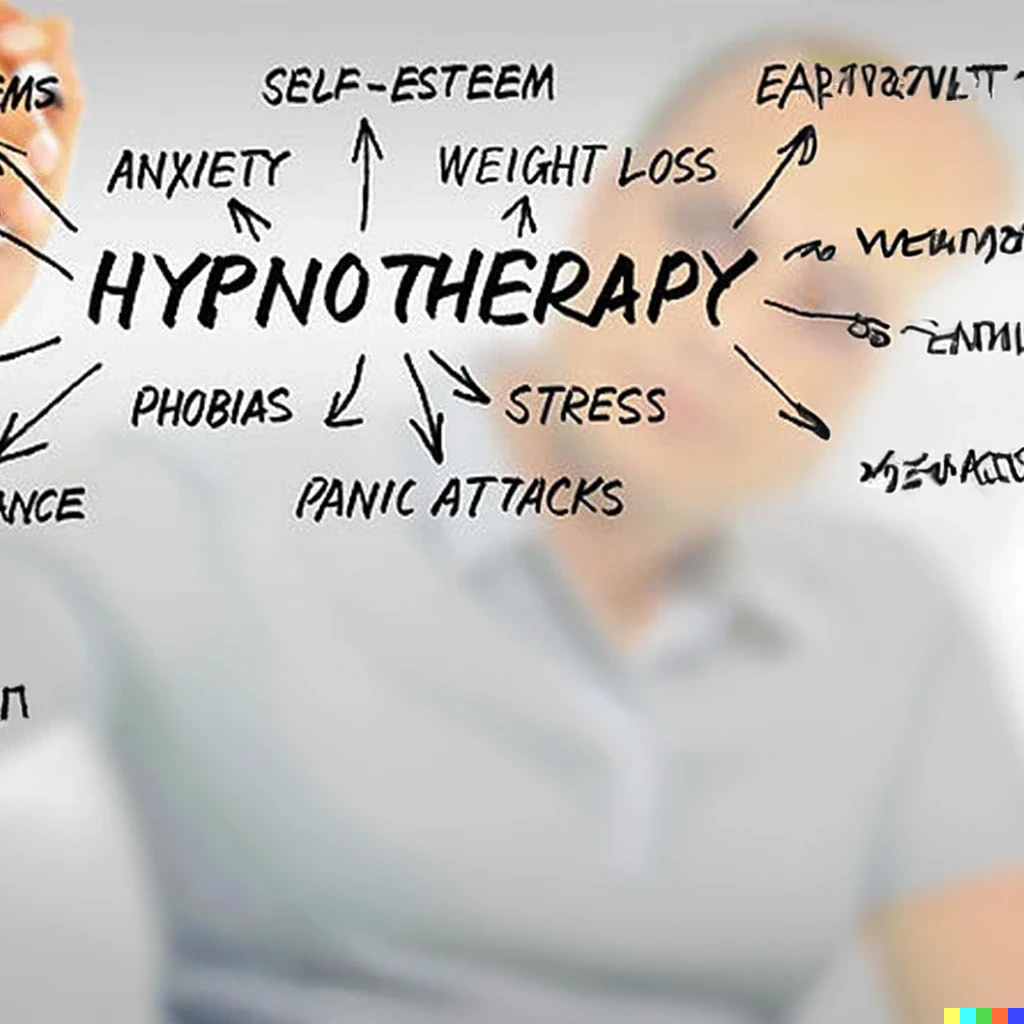Clinical hypnotherapy is a complementary therapy that has gained popularity in recent years. It is a technique in which a patient is placed in a trance-like state to help them reach a state of relaxation and increased suggestibility. The idea behind hypnotherapy is that by accessing the subconscious mind, one can identify and address underlying psychological issues that may be causing physical or emotional symptoms. In this article we will look at the latest research on clinical hypnotherapy and introduce some of the key players in the field.
Research on clinical hypnotherapy:
A study published in the Journal of Clinical Psychology found hypnotherapy to be an effective treatment for anxiety, depression and post-traumatic stress disorder (PTSD). The study involved 286 participants who received hypnotherapy sessions and reported a significant reduction in symptoms.
Another study published in the American Journal of Clinical Hypnosis found that hypnotherapy is an effective treatment for irritable bowel syndrome (IBS). The study involved 204 participants who received hypnotherapy sessions and reported a significant reduction in IBS symptoms.
A study published in the International Journal of Clinical and Experimental Hypnosis found that hypnotherapy is an effective treatment for chronic pain. The study involved 100 participants who received hypnosis sessions and reported a significant reduction in pain intensity and frequency.
A study published in the Journal of Psychosomatic Research found that hypnotherapy is an effective treatment for insomnia. The study included 50 participants who attended hypnotherapy sessions and reported improved sleep quality and duration.
A study published in the Journal of Consulting and Clinical Psychology found that hypnotherapy is an effective treatment for smoking cessation. The study included 286 participants who received hypnotherapy sessions and reported a higher success rate in quitting smoking than other treatments.
A study published in the International Journal of Clinical and Experimental Hypnosis found that hypnotherapy is an effective treatment for phobias. The study involved 50 participants who received hypnotherapy sessions and reported a significant reduction in phobia-related symptoms.
A study published in the American Journal of Clinical Hypnosis found that hypnotherapy is an effective treatment for weight loss. The study included 109 participants who attended hypnotherapy sessions and reported significant reductions in body weight and BMI.
A study published in the Journal of Alternative and Complementary Medicine found that hypnotherapy is an effective treatment for hot flushes in menopausal women. The study included 187 participants who received hypnotherapy sessions and reported a significant reduction in hot flushes.
A study published in the Journal of Psychosomatic Obstetrics and Gynaecology found that hypnotherapy is an effective treatment for labour pain. The study included 500 participants who received hypnotherapy sessions and reported a significant reduction in pain during labour.
A study published in the Journal of Pain Research found that hypnotherapy is an effective treatment for fibromyalgia. The study included 120 participants who received hypnotherapy sessions and reported a significant reduction in pain intensity and fatigue.
Important contributions to hypnotherapy:
Milton H. Erickson: Erickson, considered the father of modern hypnotherapy, focused his techniques on the unique experiences and perspectives of the patient.
Ernest Rossi: A student of Erickson, Rossi contributed to the development of the field by developing the concept of “psychobiology” and integrating neuroscience into hypnotherapy.
John Grinder and Richard Bandler: These two psychologists developed neurolinguistic programming (NLP), a technique that combines hypnotherapy with language patterns and behavioural strategies.
Michael Yapko: A clinical psychologist and hypnotherapist, Yapko is known for his work in treating depression and for his contributions to the field.
Additional contributors to hypnotherapy from India:
Dr. R. C. Patel: Considered the father of hypnotherapy in India, Dr. Patel established the Indian Society of Hypnosis and served as its first president. He is also the author of several books on hypnotherapy.
Dr. V. K. Kapoor: A psychiatrist and hypnotherapist, Dr. Kapoor is the founder of the Institute of Clinical Hypnosis and Related Sciences (ICHARS) in Delhi, which offers hypnotherapy training and services.
Dr. K. N. Rao: A psychiatrist and hypnotherapist, Dr. Rao is the founder of the Indian Academy of Hypnosis and serves as its president. He has also authored several books on hypnotherapy.
Dr. Pradeep B. Deshpande: A hypnotherapist and founder of the Indian Institute of Hypnotherapy, Dr. Deshpande has conducted research on the effectiveness of hypnotherapy for various conditions.
Organizations promoting hypnotherapy worldwide:
- American Society of Clinical Hypnosis (ASCH): Founded in 1957, ASCH is a professional organization for hypnotherapists in the United States. It offers training, certification, and continuing education programs for hypnotherapists and sponsors research in the field.
- International Association of Hypnotherapy Professionals (IAHP): IAHP is a global organization for hypnotherapists that offers training, certification, and networking opportunities. It also sponsors research and advocacy efforts to promote the use of hypnotherapy.
- European Society of Hypnosis (ESH): ESH is a professional organization for hypnotherapists in Europe that promotes the use of hypnotherapy in healthcare and offers training, certification, and continuing education programs.
- National Guild of Hypnotists (NGH): NGH is a professional organization for hypnotherapists in the United States and worldwide that offers training, certification, and networking opportunities. It also sponsors research and advocacy efforts to promote the use of hypnotherapy.
- Society for Clinical and Experimental Hypnosis (SCEH): SCEH is a professional organization for hypnotherapists in the United States and worldwide that offers training, certification, and networking opportunities. It also sponsors research and advocacy efforts to promote the use of hypnotherapy.
- Hypnotherapy Association (HA): HA is a professional organization for hypnotherapists in the United Kingdom that offers training, certification, and continuing education programs. It also sponsors research and advocacy efforts to promote the use of hypnotherapy.
- Indian Society of Clinical and Experimental Hypnosis (ISCEH): A professional association of hypnotherapists and researchers in India, ISCEH offers training, workshops, and research opportunities.
- Indian Institute of Hypnotherapy (IIH): IIH is a hypnotherapy training institute that offers certification programs and workshops in various cities across India.
- Institute of Clinical Hypnosis and Related Sciences (ICHARS): ICHARS is a mental health clinic and training institute that offers hypnotherapy services and training programs in Delhi.
Clinical hypnotherapy is a promising complementary therapy that has shown effectiveness in treating various physical and psychological conditions. Research on hypnotherapy continues to expand, with many recent studies demonstrating its efficacy. The field of hypnotherapy has been shaped by numerous contributors, both in India and internationally, who have advanced our understanding of the technique and its potential applications. Organizations like ISCEH, IIH, and ICHARS in India are working to promote the use of hypnotherapy and provide training opportunities for aspiring hypnotherapists.








